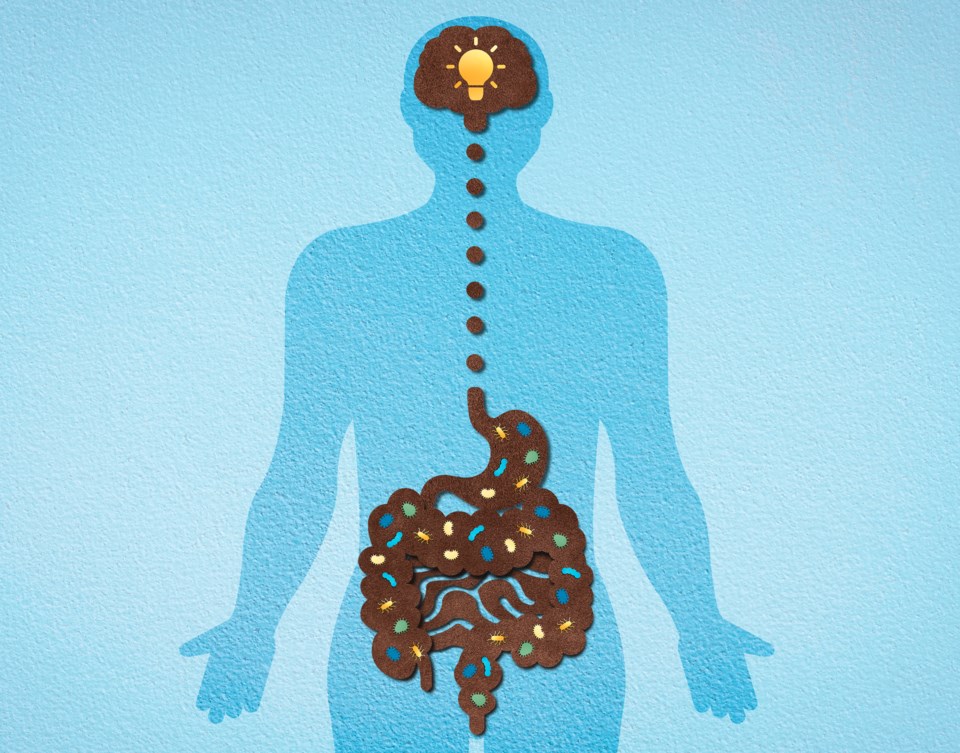I have always been fascinated by the mind-body connection to health and wellbeing (both physically and mentally), and learning about the Vagus Nerve seems to answer a lot of questions of why and how they are connected. The vagus nerve is a complex nerve that serves as a vital communication highway within our central nervous system, and is the longest nerve in our central nervous system. Its name, derived from the Latin word for "wanderer," aptly describes it as it connects many physiological processes in the body and brain.
It regulates many body processes including heart rate, blood pressure, respiration (breathing), circulation, digestion, gut health, sexual arousal, hearing, taste, swallowing, bladder and fertility... 90% of our brain's output is dedicated to its functioning.
Within the brain, this nerve controls anxiety and depression and is responsible for creativity and problem solving. It is also responsible for fear and the gut instinct during a threatening situation. A healthy vagus nerve allows us to access parts of the brain responsible for creativity, higher cognition, complex decision making and leadership.
The health of the vagus nerve can be affected by stress, drinking alcohol, smoking, poor lifestyle, overwork, lack of exercise, improper nutrition and lack of sleep. An unhealthy vagus nerve causes the body and mind become susceptible to a range of health issues including depression, anxiety, obesity, hypertension and other cardiovascular disorders, chronic inflammation, digestive disorders, diabetes, kidney malfunction and even infertility. If our vagus nerve is not healthy, we mainly access only primal parts of our brain like fear, anxiety, the fight-flight response, and depression. Recent studies explore the role of the vagus nerve in trauma, and how vagus nerve exercises may calm post traumatic stress.
Vagal tone represents the health of our vagus nerve. In 2010 researchers concluded that the more we increase our vagal tone, the better our mental and physical health, and vice versa. Increasing vagal tone activates the parasympathetic nervous system enabling our bodies to relax faster after stress, reduce anxiety and depression, slow our heart rate, lower blood pressure, and stimulate digestion, to name a few. The FDA has approved a device that can be implanted to stimulate the vagus nerve but we can stimulate the vagus nerve naturally by doing any of the following:
Deep and Slow Breathing stimulates the vagus nerve, affecting the parasympathetic system and reduces anxiety. This is why deep breathing is always recommended to calm someone down or relieve stress. Try taking only 6 breaths over a minute instead of the usual 10-14 breaths. Take a deep belly breath in and release it slowly. Slow focused breathing and Meditation are very effective relaxation methods that increase vagal tone and promote feelings of wellness. See article on the benefits of breathing deeply.
Probiotics are highly beneficial to the gut by increasing good gut bacteria and this benefit is transported to the brain by the vagus nerve, improving our mood and increasing GABA receptors while reducing stress hormone and decreasing anxiety.
Omega-3 Fatty Acids are essential fats that our bodies are incapable of producing. They are found in fish and other foods, and are necessary for the proper electrical functioning of our nervous system and brain health. They are excellent for mental health and have been shown to reduce/reverse cognitive decline.
Exercise also stimulates the vagus nerve, increases our brain’s growth hormone, supports our brain’s mitochondria, and helps reverse cognitive decline which explains why it is beneficial to brain health and mental health. Best exercises for vagal stimulation include weightlifting, walking, and high intensity cardio (like sprinting).
Cold Exposure on a regular basis lowers our sympathetic “fight or flight” response and increases parasympathetic activity through the vagus nerve (as well as being invigorating). If you don’t have a chilly body of water to dive into, a cold shower will do. Many people make a practice of turning off the heat in their shower for the last couple minutes or so.
Singing, Humming, Chanting and Gargling stimulates the vagus nerve which is connected to the throat and vocal cords. Gargling water before drinking is a suggested practice by Dr Datis Kharrazian.
Massage can increase vagal activity and vagal tone but I am referring to a relaxing massage rather than the deep painful kind. Reflexology (foot massage) also increases vagal modulation and decreases stress.
Laughing and Socializing reduces our body’s main stress hormone by stimulating the vagus nerve and increasing vagal tone, which increases positive emotions. During Covid, the decreased social connections and increased fear responses caused decreased Vagal tone in many people.
We can all be healthier by changing our minds and our bodies. We have much more control over our state of being than we think, and by stimulating our vagus nerves we can send messages to our bodies to relax and de-stress. This in turn leads to improvements in resilience, the ability to better manage or overcome depression and anxiety, more positive overall moods and a sense of general wellbeing.
Claire Nielsen is a health coach, author, public speaker and founder of www.elixirforlife.ca. The information provided in the above article is for educational purposes only and is not a substitute for professional health and medical advice. Please consult a doctor or healthcare provider if you're seeking medical advice, diagnoses and/or treatment



